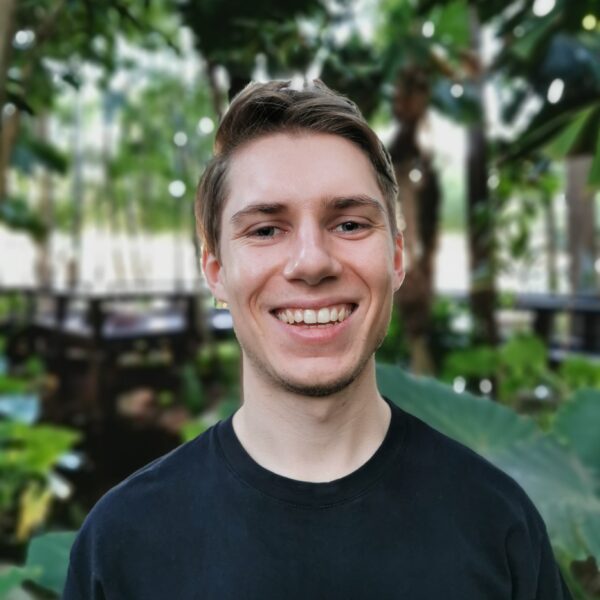
Project title
Macrocyclic Polymers of 2-Oxazolines and Related Compounds as Biomaterials
Supervisory Team
Principal Supervisor: A/Prof. Tim Dargaville
Associate Supervisors: Dr Anja Goldmann & Dr Hendrik Frisch
External Supervisor: Dr Kristian Kempe (Monash University, Melbourne)
Project description
While highly biocompatible cyclic poly(2-oxazoline)s have gained attention as promising materials for applications such as anti-fouling surface coatings, cartilage reconstruction and as precursors for gene delivery materials, the synthesis of cyclic polymers remains a challenge. Currently, high dilutions and labour-intensive workups are necessary for the synthesis of few milligrams of cyclized product. In my project, I am addressing the scale up of cyclic poly(2-oxazoline)s and the so far unexplored cyclic poly(2-oxazine)s by conducting in-depth studies of the cyclization mechanism and the effect of reaction conditions on the reaction outcome. Furthermore, I am exploring the usage of cyclic poly(2-oxazine)s for different applications, such as surface coatings or for the synthesis of novel nanoparticles.
Short Biography
Nick received his Bachelor of Science degree in Chemistry (2016) from the University of Stuttgart, Germany. He then moved on to complete a joint Master’s degree in Biofabrication (2018) between the University of Wuerzburg (JMU), Germany and the Queensland University of Technology (QUT), Australia. During this time, he worked on several research projects, including the synthesis of novel bioinks based on poly(2-oxazoline)s and poly(2-oxazine)s under the supervision of Prof. Robert Luxenhofer (JMU) and the investigation of novel cell-adhesion peptides for tissue engineering under the supervision of A/Prof. Tim Dargaville (QUT). He presented his findings at the “International Conference on Biofabrication” in Wuerzburg (2018). Since November 2020, Nick is conducting his PhD studies in the laboratory of A/Prof. Tim Dargaville at QUT. His research interests include the synthesis of advanced polymer architectures and their application as biomaterials. For his research in the first year of his PhD he received the “Outstanding Student Poster Presentation” award at the 27th Annual Australasian Society for Biomaterials and Tissue Engineering (ASBTE) conference (hosted by the University of Melbourne, 2022).